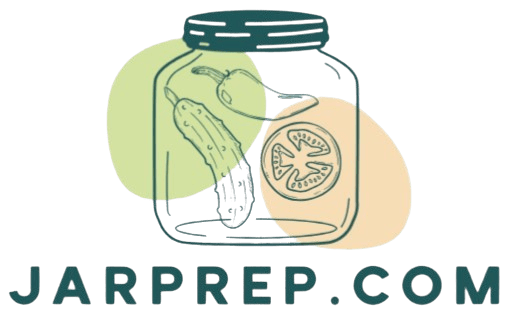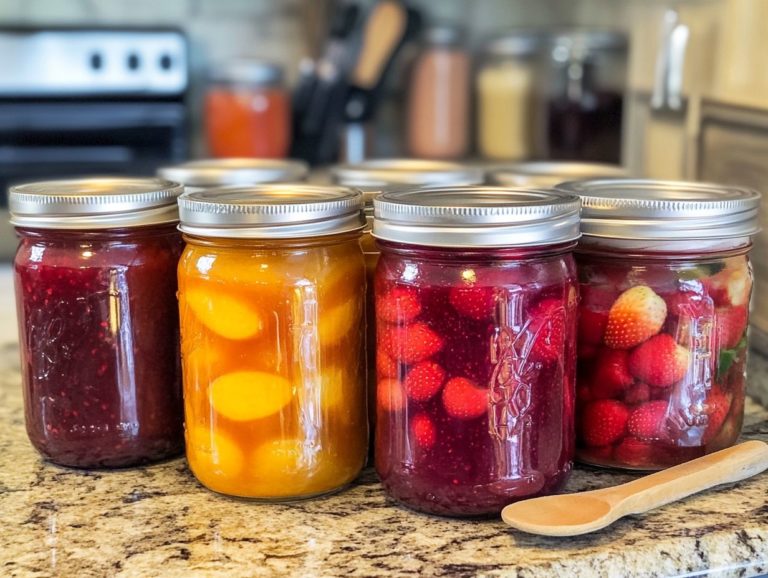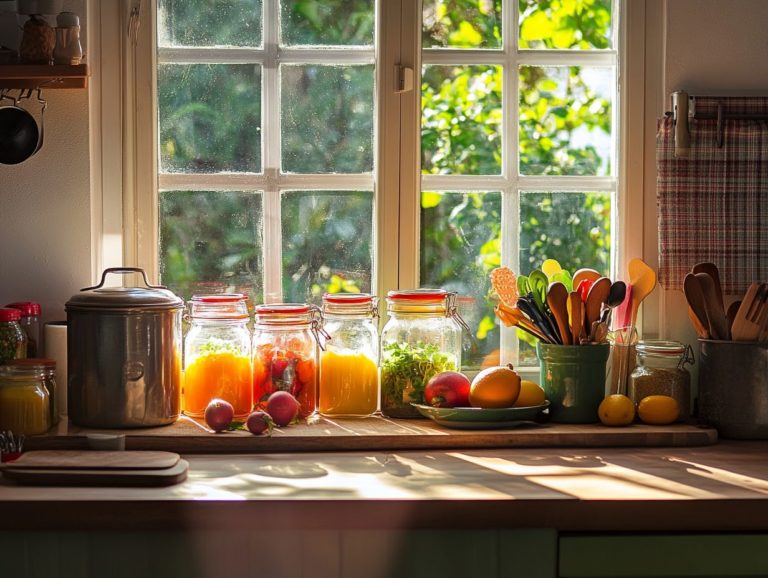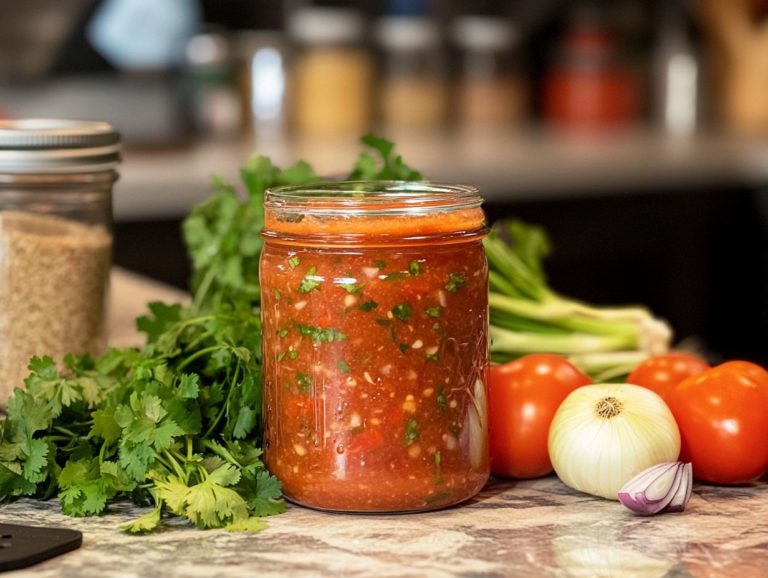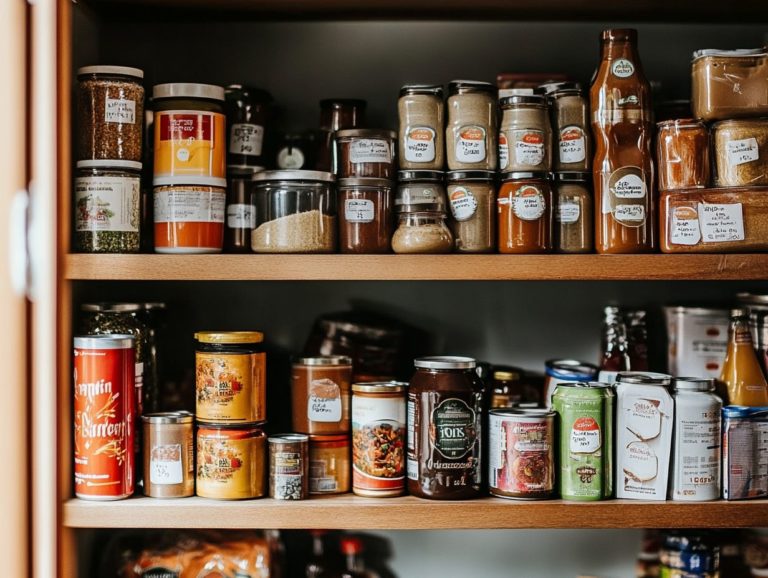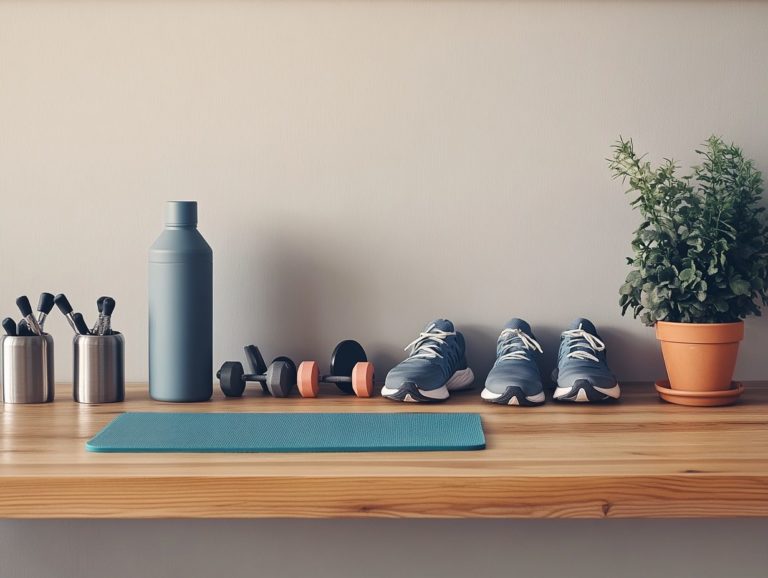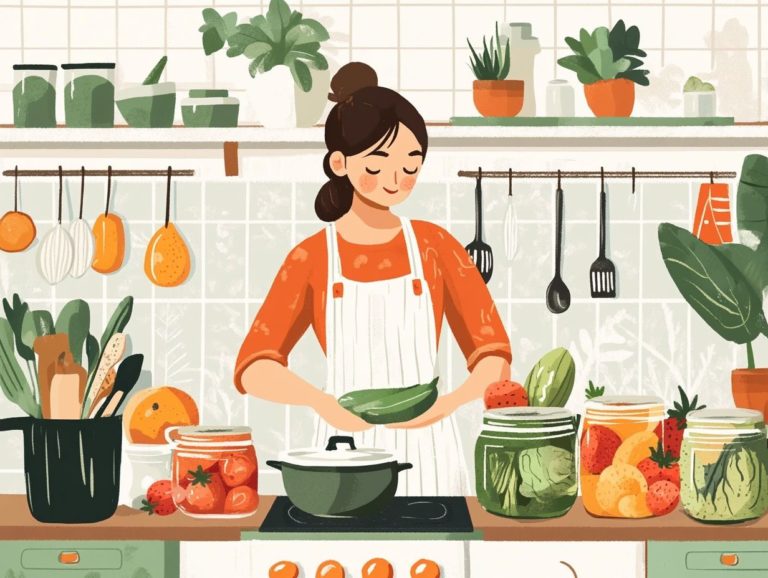Can I Use Plastic Lids for Canning?
Canning is a classic method for preserving food. It enables you to relish seasonal flavors long after the harvest has ended.
As the art of home canning continues to gain traction, you may find yourself pondering the best materials to use, especially when it comes to lids. This article also covers safety concerns and explores alternatives, offering practical tips to ensure your canning endeavors are both successful and safe.
Contents
- Key Takeaways:
- Understanding Canning and Its Purpose
- Types of Canning Lids
- Pros and Cons of Using Plastic Lids for Canning
- Safety Concerns with Plastic Lids
- Alternatives to Plastic Lids
- Tips for Using Plastic Lids for Canning
- Frequently Asked Questions
- What are the safety concerns with using plastic lids for canning?
- Are there any types of plastic lids that are safe for canning?
- What happens if I use plastic lids for canning anyway?
- Is it possible to reuse plastic lids for canning?
Key Takeaways:
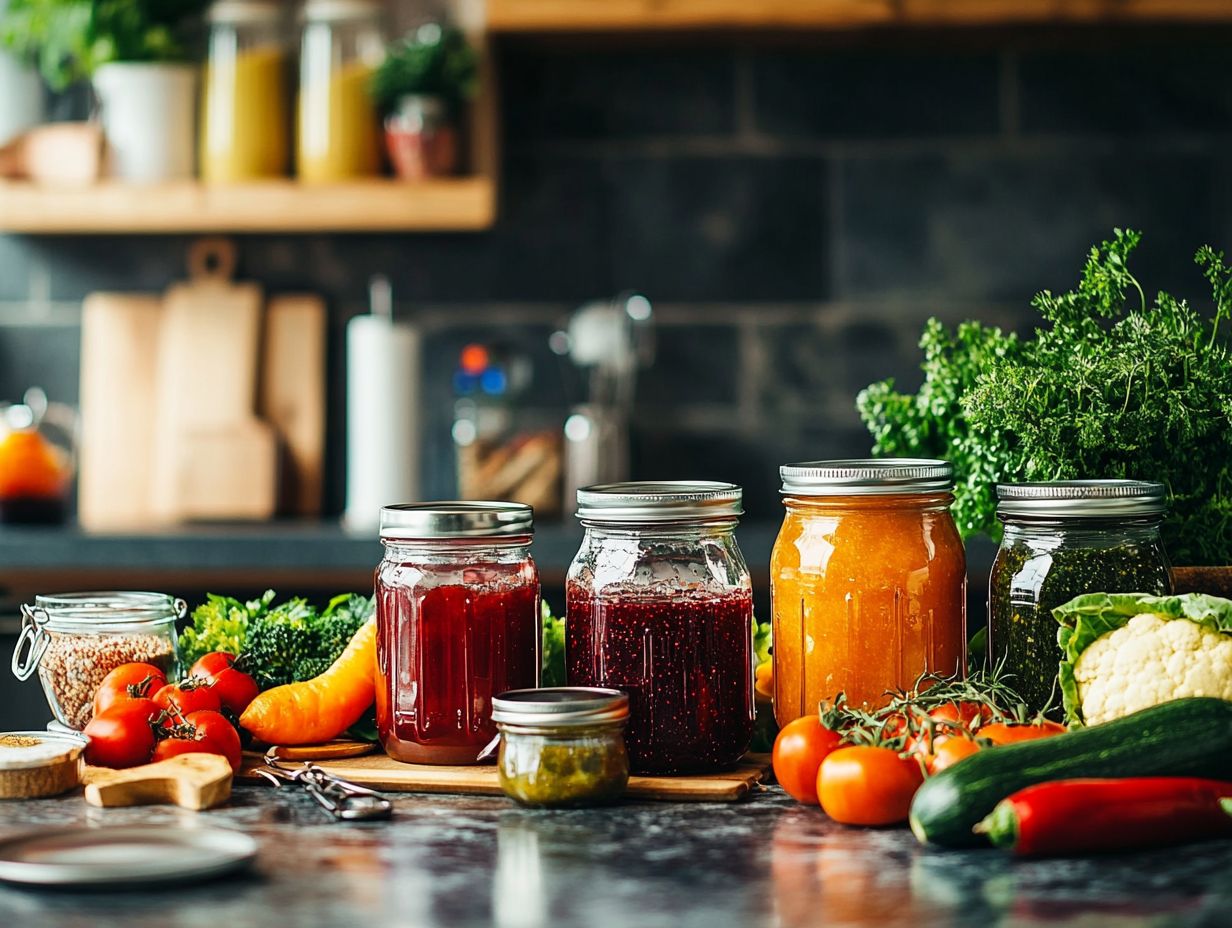
- Plastic lids can be used for canning, but they have advantages and disadvantages compared to metal lids.
- Safety concerns surround plastic lids due to potential risks and controversies.
- Follow best practices for sealing and storage when using plastic lids for canning.
Understanding Canning and Its Purpose
Canning is a revered method of food preservation that traces its roots back to September 13, 1858. On this date, John Landis Mason introduced the iconic Mason jar, forever linking it to the art of home canning.
This technique allows you to store a diverse array of foods. From luscious jams and tangy pickles to hearty beans and rice, you can ensure they remain safe to consume for extended periods.
With this timeless practice, you not only safeguard the flavors but also retain the nutritional value of your treasured ingredients.
What is Canning?
Canning is a simple food preservation technique that allows you to pack fresh ingredients into jars or cans. Sealing them effectively maintains a vacuum.
This process prevents spoilage and extends the shelf life of your favorite foods. It enables you to store seasonal produce for enjoyment throughout the year.
The canning process accommodates a diverse array of foods, from fruits and vegetables to meats and sauces. It generally involves preparing your food, filling the jars or cans, and then subjecting them to heat.
This crucial step eliminates bacteria and enzymes that could lead to spoilage. To embark on this culinary adventure, you ll need essential equipment, such as durable Mason jars and reliable canning lids.
Renowned manufacturers like Ball Corporation have established a strong reputation for quality. Countless customers commend the effectiveness and safety of their products.
Reviews consistently emphasize how these tools transform the home canning experience into something effortless and enjoyable. Imagine savoring your favorite flavors while creating delicious homemade preserves that retain their nutrients and vibrant flavors!
Why is it Important?
The importance of canning lies in its remarkable ability to preserve seasonal fruits and vegetables. This practice allows you to savor your favorite foods throughout the year while minimizing waste and contributing to sustainability.
You can enjoy the vibrant taste of summer tomatoes even in the depths of winter. Plus, it leads to considerable economic savings by slashing your grocery bills!
By taking charge of the ingredients you use, you can sidestep the preservatives and additives often found in store-bought products. This ensures that you provide healthier options for your loved ones.
Home canning also enhances your food security. It enables you to stockpile nutritious foods during peak harvest times. Numerous customer testimonials highlight the effectiveness of using canning jars; many have expressed satisfaction in crafting homemade sauces and jams that far exceed the flavor and quality of commercial varieties.
Types of Canning Lids
In the realm of canning, selecting the right canning lid is essential for achieving a proper seal. This safeguards against spoilage.
You ll encounter two primary types: metal lids and BPA-free plastic lids (free from harmful chemicals). Each has its own unique advantages and disadvantages, tailored to various food preservation needs.
Metal Lids vs Plastic Lids
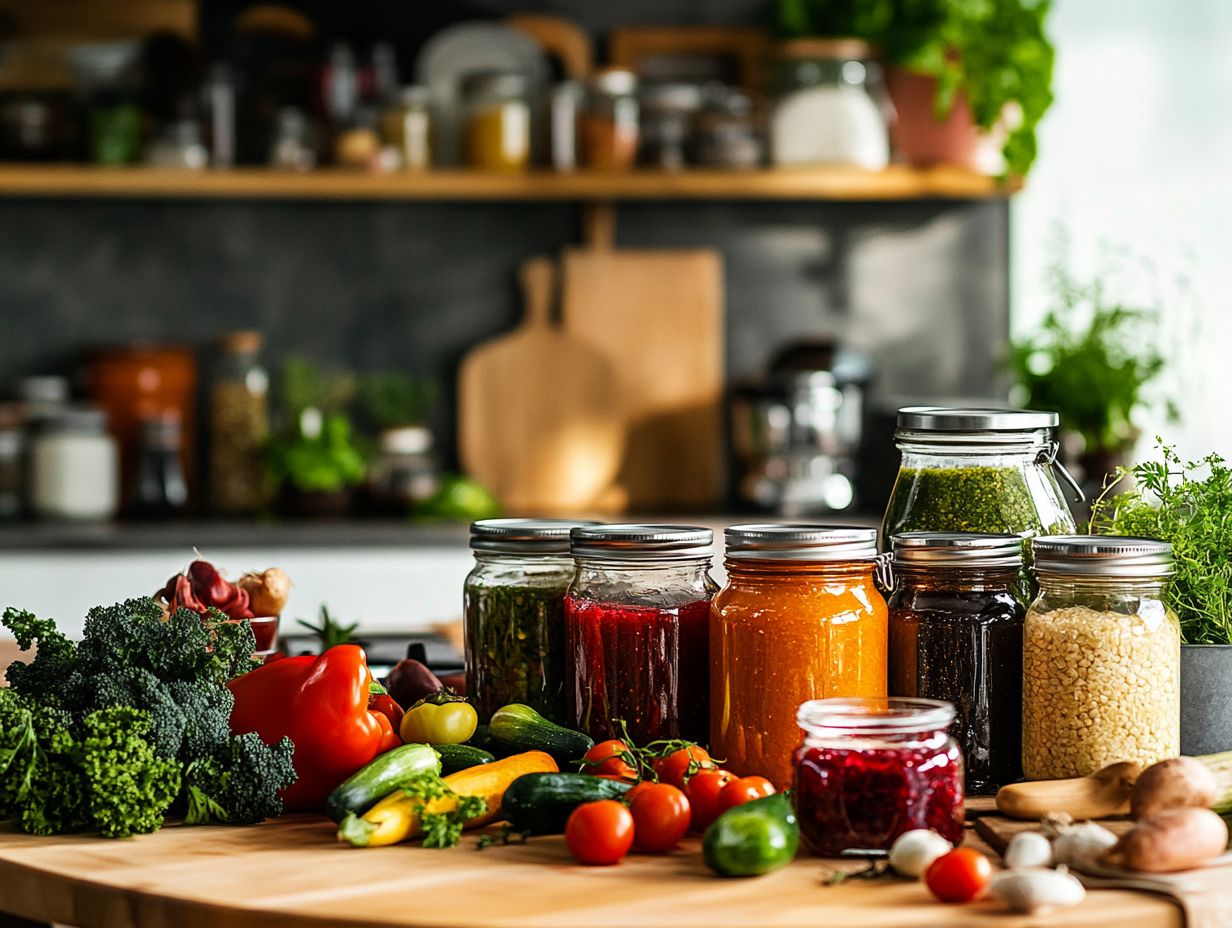
Metal lids are your go-to option for traditional canning, offering a reliable, leak-proof seal that stands the test of time. Meanwhile, BPA (bisphenol A)-free plastic lids have become quite the favorite, thanks to their lightweight design and ease of cleaning and dry storage.
Regarding sealing effectiveness, you’ll likely find that metal lids reign supreme for items that demand a tight enclosure, especially in environments like refrigerators or freezers where preserving freshness is key. Their sturdy nature makes them durable, enabling them to handle pressure changes without warping.
On the flip side, while plastic lids provide convenience and simplicity, they may not quite match the airtight performance of metal lids. This is particularly true for pur ed foods that require utmost protection from contamination. User experiences often reveal that metal lids excel in colder conditions. Plastic lids are ideal for dry storage, making each type highly suitable for specific situations.
Pros and Cons of Using Plastic Lids for Canning
While plastic lids provide notable advantages, like being lightweight and easy to clean, they also present certain drawbacks. These could compromise how well they seal and affect the long-term storage of canned goods, especially for items stored in the refrigerator freezer.
Think carefully about the pros and cons before you decide. This duality warrants a thoughtful evaluation from canning enthusiasts and those interested in creative preserving methods.
Advantages of Plastic Lids
One of the standout benefits of using BPA-free plastic lids for canning lies in their remarkable sturdiness and durability. They re designed for easy handling during the sealing process, making them an excellent choice for repeated use in food preservation.
Beyond their strength, these lids prioritize safety in food storage by eliminating the risk of harmful chemicals seeping into your sealed contents. The user-friendly design simplifies the canning experience, even for beginners. You can confidently preserve a variety of items, from fresh fruits to your own homemade sauces.
Customer testimonials often showcase successful canning sessions where these lids delivered perfect seals. This results in fresh, delicious products that can be enjoyed well after harvest. Choosing these lids supports a more environmentally friendly approach, as they cut down on the reliance on single-use metal lids.
Disadvantages of Plastic Lids
While plastic lids are undeniably convenient, they do come with their downsides. They can leak mold and often lack the reliable air-tight seals that are crucial for preserving the quality of your canned goods. This is especially important during long-term storage.
These shortcomings can result in unwanted spoilage, jeopardizing your carefully preserved food. Unlike metal lids, which establish a robust barrier against air and moisture, plastic lids might not hold up over time. This deterioration leaves your food vulnerable to bacteria and other pathogens, increasing the likelihood of spoilage.
The flexibility of plastic can lead to warping, which compromises the seal and makes it challenging to determine if your jars are properly sealed. Therefore, when considering food preservation, you might want to think twice plastic lids simply may not provide the same peace of mind that metal alternatives consistently deliver.
Safety Concerns with Plastic Lids
Safety concerns regarding plastic lids primarily center on the materials utilized, particularly the question of whether they are BPA-free. This focus has sparked considerable debate about their integrity and the potential risks they pose in food preservation.
Potential Risks and Controversies
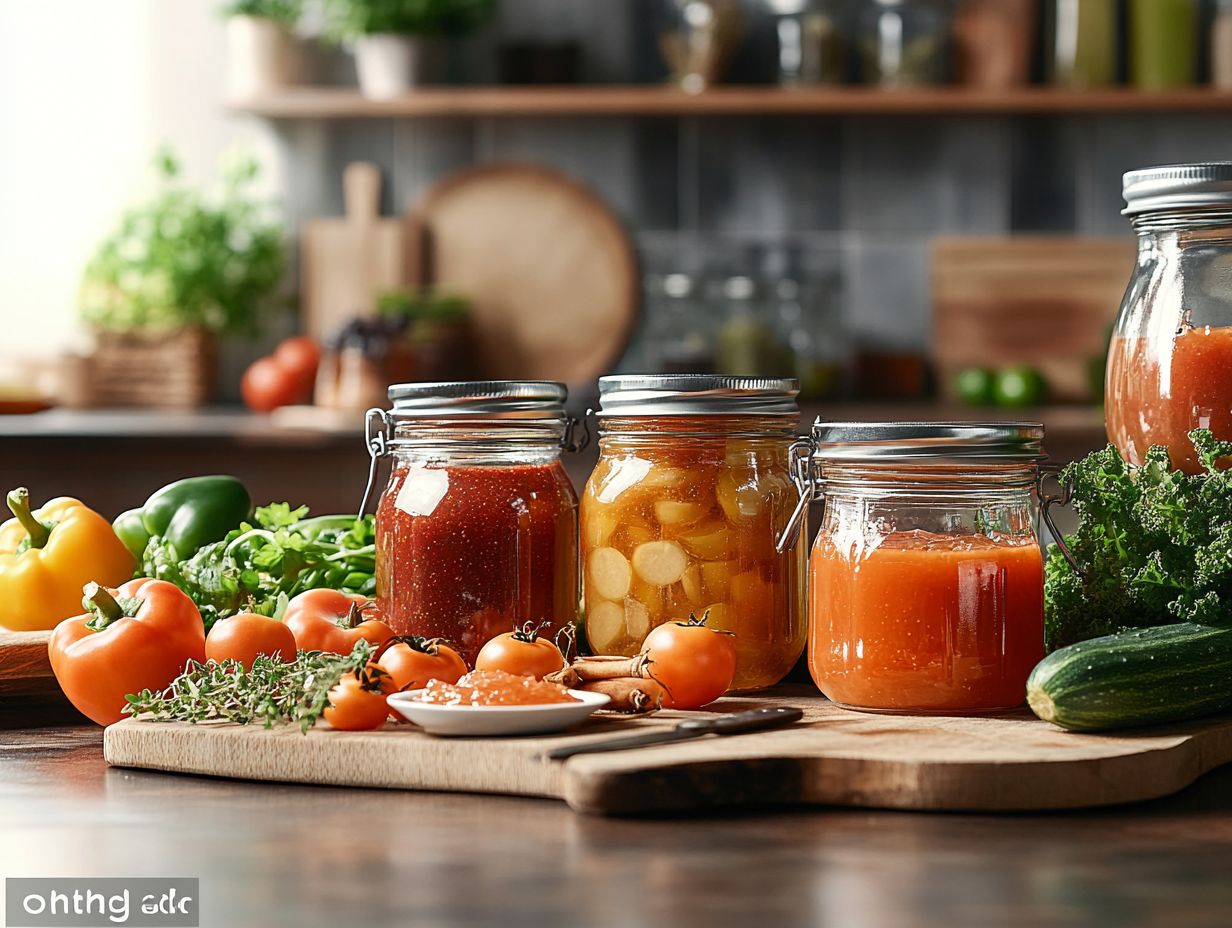
Potential risks associated with plastic lids include the chance of chemicals leaking, especially in non-BPA-free products. This concern has ignited debates among canning enthusiasts and health-conscious consumers.
Recent scientific research amplifies this worry, revealing that certain plastic compounds may seep into food over time, particularly when exposed to heat or acidic conditions. Community feedback showcases a growing divide: some individuals champion traditional metal lids for their safety and reliability, while others prefer the convenience and lightweight nature of plastic options.
Customer testimonials present a wide range of perspectives. One person might confidently opt for plastic lids, drawn in by their cost-effectiveness and ease of use. Another might harbor reservations, preferring glass jars due to concerns about long-term health impacts. These varied opinions shape consumer behavior and influence purchasing decisions as individuals strive to balance convenience with safety.
Alternatives to Plastic Lids
When seeking alternatives to plastic lids, metal lids stand out as a favored option. Their well-established sealing capabilities and dependability in food preservation make them an excellent choice.
You can find many BPA-free options available today, ensuring you can discover a solution that meets your needs while prioritizing safety.
Other Options for Canning Lids
Along with metal lids, you’ll find various alternative canning lid options available on the market, including exciting specialty lids designed just for your needs! This means you can easily discover the ideal solution for your canning projects.
These alternatives include reusable silicone lids, which are becoming increasingly popular thanks to their flexibility and eco-friendliness. You’ll also come across specialty lids crafted for fermentation and pickling. For those who prioritize safety without sacrificing durability, BPA-free plastic lids cater perfectly to family-oriented canners.
Renowned manufacturers like Ball and Kerr offer these innovative products, and user reviews often attest to their reliability and effectiveness in sealing in freshness. Many customers share positive experiences, highlighting how these options simplify the canning process while delivering optimal results.
Tips for Using Plastic Lids for Canning
When you use plastic lids for canning, it’s crucial to adhere to best practices and precautions. For more information on this, check out our guide on how to choose the right canning lids. This ensures not only the safety of your food but also the longevity of your preserved goods.
Pay special attention to proper sealing techniques and storage methods to maximize their effectiveness.
Best Practices and Precautions
When using plastic lids, it’s crucial to ensure they are leak-proof and securely sealed. This prevents any spoilage or contamination something customers who have embarked on canning adventures emphasize time and again.
Customer reviews often underscore the significance of choosing the right size and type of plastic lid to match each container. Many suggest taking the time to clean the rim of the container thoroughly before sealing, as this can greatly enhance the seal’s effectiveness. By applying gentle pressure while securing the lid, you can achieve an airtight closure that further protects your contents.
It’s also advisable to store sealed containers in a dark, cool place to maximize freshness. Numerous users have noted that this method drastically reduces food waste and preserves the flavor integrity of their culinary creations.
Frequently Asked Questions
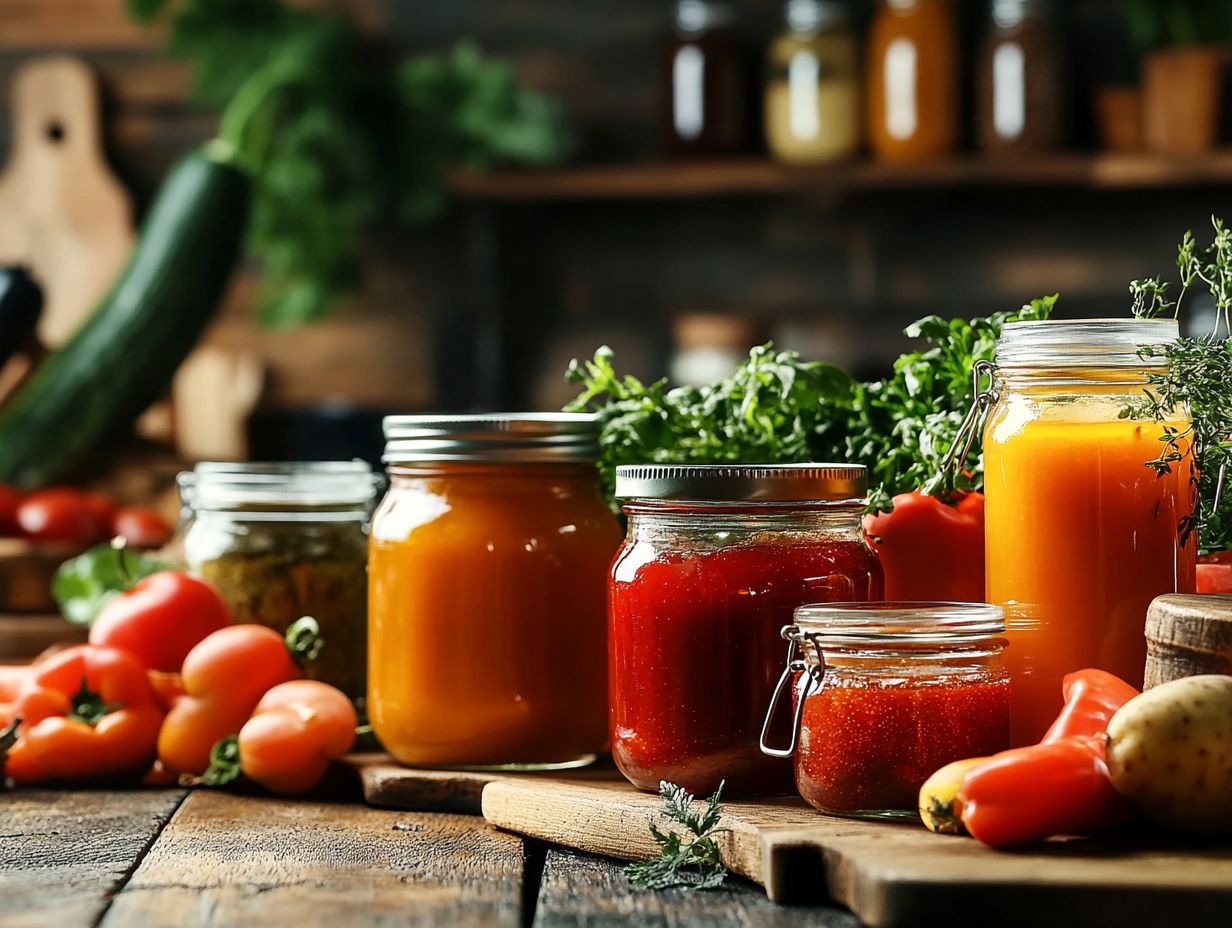
Can I Use Plastic Lids for Canning?
It’s best to avoid plastic lids for canning due to safety concerns.
Why Can’t I Use Plastic Lids for Canning?
Plastic lids do not provide a strong enough seal to keep food properly preserved.
For more information on safe canning methods, be sure to explore our recommended resources and share your experiences with different lid types!
What are the safety concerns with using plastic lids for canning?
Plastic lids can t handle the high temperatures needed for canning. This can spoil food and pose health risks.
Are there any types of plastic lids that are safe for canning?
No, avoid all plastic lids for canning. It’s important to use proper canning lids, such as those discussed in canning lids: metal vs. plastic options, and jars to keep your food safe and well-preserved.
What happens if I use plastic lids for canning anyway?
Using plastic lids can lead to harmful bacteria growth. This makes the food unsafe, so always follow safe canning methods.
Is it possible to reuse plastic lids for canning?
No, plastic lids can t be reused for canning. They aren’t designed to handle the heat and pressure of the canning process.
